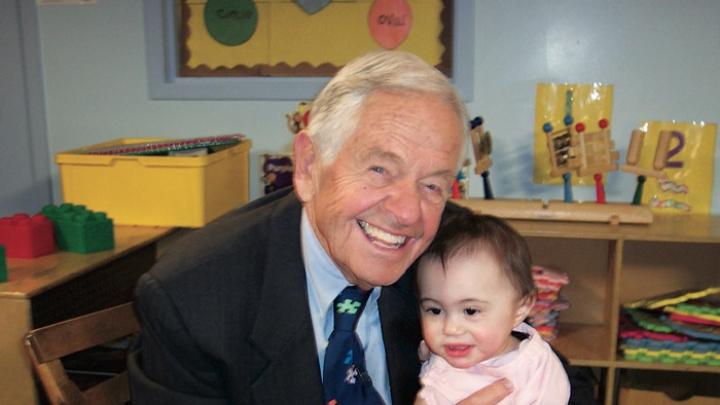T. Berry Brazelton, clinical professor of pediatrics emeritus, has been the guide for recent generations who find themselves in possession of newborns in the process of growing up. Preparing for his ninetieth birthday, in May 2008, colleagues began assembling a guide to the research frontiers Brazelton’s work had opened. The result, edited by Barry M. Lester, of Brown, and assistant professor of psychiatry Joshua D. Sparrow, of Children’s Hospital, is Nurturing Children and Families: Building on the Legacy of T. Berry Brazelton (Wiley-Blackwell, $119.95). The following, sans references, comes from Lester’s introductory essay.
The Neonatal Behavioral Assessment Scale (1973), often referred to as the Brazelton scale, forever changed the way we see, think about, and understand babies. In the sense of a true Kuhnian revolution, the data, the facts that came to be known from research with the Brazelton scale, no longer fit the existing paradigm and we could no longer view the baby as a tabula rasa. There are literally hundreds of studies that have used the Brazelton scale to document the extraordinary behavioral repertoire of the newborn, the baby as part of an interactional process, and the baby with self-regulatory capacities.
One key contribution that came out of this work was the study of individual differences in newborn behavior. In Infants and Mothers (1969), Brazelton described three different kinds of babies: “quiet,” “active,” and “middle of the road.” These differences were described as “constitutional” and Brazelton pointed out that parents need to learn to adjust to these differences, thus opening the door to the idea that newborn infant behavior affects parenting.…The fact that there are individual differences at birth also helped shatter the myth of the baby as tabula rasa. But it did more than that because the research also showed that these individual differences shape the mother-infant reaction. So the infant emerges as shaping his or her own development and this phenomenon can be observed all over the world. Showing that these individual differences affect parenting—that they alter the caregiving environment—may very well have been the coup de grâce that cemented the paradigm shift.
The Brazelton scale changed the field of temperament. Use of the term “temperament” had previously been reserved for older infants and children. With the advent of the Brazelton scale, temperament could now be described along the lines of individual differences in newborn behavior. The “quiet” baby became the child with “easy” temperament. Also, most temperament researchers claimed that temperament was biologically based. The fact that temperament could now be described in the newborn, before postnatal environmental factors came into play, gave strong support to the biological basis of temperament. In addition, temperament is thought of as what later becomes personality in the older child. So by extension, the newborn was seen as entering the world with a personality. A far cry from the tabula rasa!








